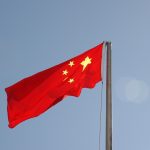For Chief Justice John Roberts, the Court's role in interpreting the Constitution should not be questioned just because people are unhappy with its decisions.
During his first appearance in public since leaving the United States, the judge requested him to comment on the past year in court. Roberts expressed concern on Friday that some critics of the court's difficult rulings have recently challenged the legitimacy of the court, which he claimed was a misstep. Roberts' comments came on the same day that the Supreme Court overturned the Roe v. Wade decision. He did not make any particular references or name any detractors in his speech.
I'm not sure who would pick up that mantle if the court were to relinquish its constitutional job of interpreting the constitution. If the court were to do so, of course. Roberts argued that the law should not be determined by the legislative or executive departments, and that public opinion should not be used to determine the correct choice.
Roberts characterized the previous year as one that was uncommon and challenging, and he cited the fact that the public was not permitted inside the court since it was closed in 2020 due to the coronavirus pandemic as one of the challenges. Additionally, he stated that it was "gut wrenching" to go into the Supreme Court building every day because it was encircled by barricades.
In May, protests broke out outside the court and outside the residences of some Supreme Court justices after an unusual leak of a draft opinion indicated the justices were about to overturn Roe v. Wade, which gave women with constitutional protections for abortion for over 50 years.
However, an investigation into the leak that was ordered by Chief Justice Roberts is still ongoing while the barricades have been removed and the public will be let back inside when the court's new session begins in October.
Speaking at the same conference on Thursday, Justice Neil Gorsuch stated that identifying the source of the leak is "terribly important." He also stated that he is anticipating receiving a report on the development of the inquiry "I hope soon."
Gorsuch, along with the other justices who have commented on it publicly, expressed their disapproval of the leak.
Judiciary is vulnerable to improper attempts to influence decision-making, according to Gorsuch, and these efforts can come from any quarter and from any source. It was reported that journalists from both The Wall Street Journal and Bloomberg were present.
The leaked draft was essentially integrated into Justice Samuel Alito's final opinion in June, which reversed Roe v. Wade in a case supporting Mississippi's legislation prohibiting abortion after 15 weeks. The opinion was written in response to a case in which the state of Mississippi was defending its law barring abortion after 15 weeks. The verdict made it possible for nearly half of the states in the United States to prohibit or severely restrict access to abortion services.
Roberts, who was appointed to the court in 2005 by then-President George W. Bush, voted to preserve the Mississippi law in June's verdict but did not join the conservative justices in overturning Roe v. Wade or Planned Parenthood v. Casey, the 1992 case that established the right to terminate a pregnancy. In his letter, he stated that it was not necessary to reject the wide precedents in order to defend the state statute and that he would instead follow a more cautious route.
Roberts has been quite vocal about the significance of maintaining the independence of the judiciary and has done so on multiple occasions to dispel the notion that the court is a political institution that is not all that dissimilar from Congress or the presidency.
After the leak and public announcement of the court's ultimate abortion ruling, however, public support for the court and faith in the institution plummeted, according to opinion polls.
In response to a question concerning what the general public might not realize about the Court's inner workings, Chief Justice John G. Roberts noted the collegiality among the justices and the custom of shaking hands before beginning conferences or taking the bench.
He stated that after the judges might disagree over a ruling, everyone in the court eats in the dining table where they speak about everything other than work.
He added that it is not born out of "fake affection," but rather a respect that emerges from the pull and push of articulating ideas and hearing to the answers to them. He said that this regard comes through the interaction.
We share a mission, and we conduct ourselves as such, he remarked.
The preceding is a summary of an article that originally appeared on Headline USA.




